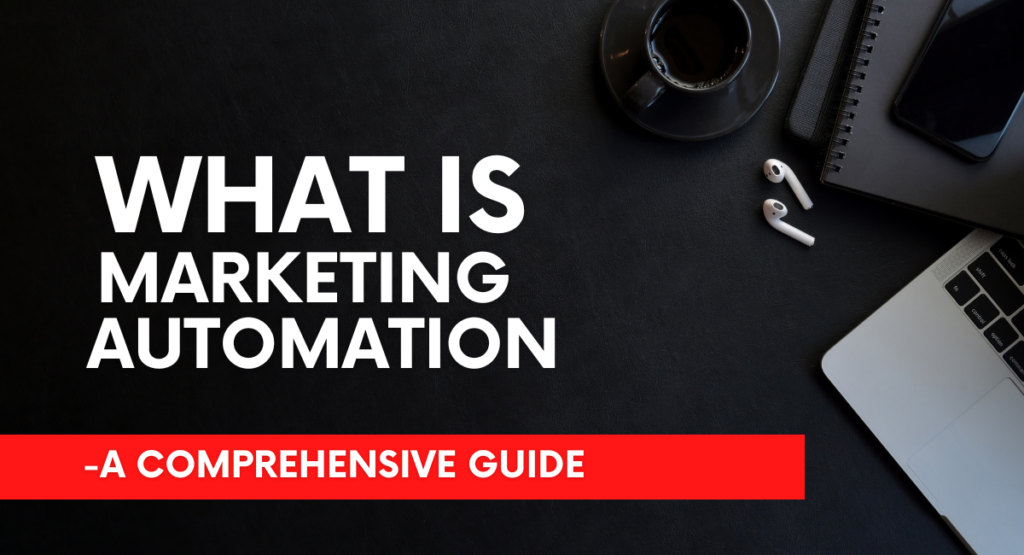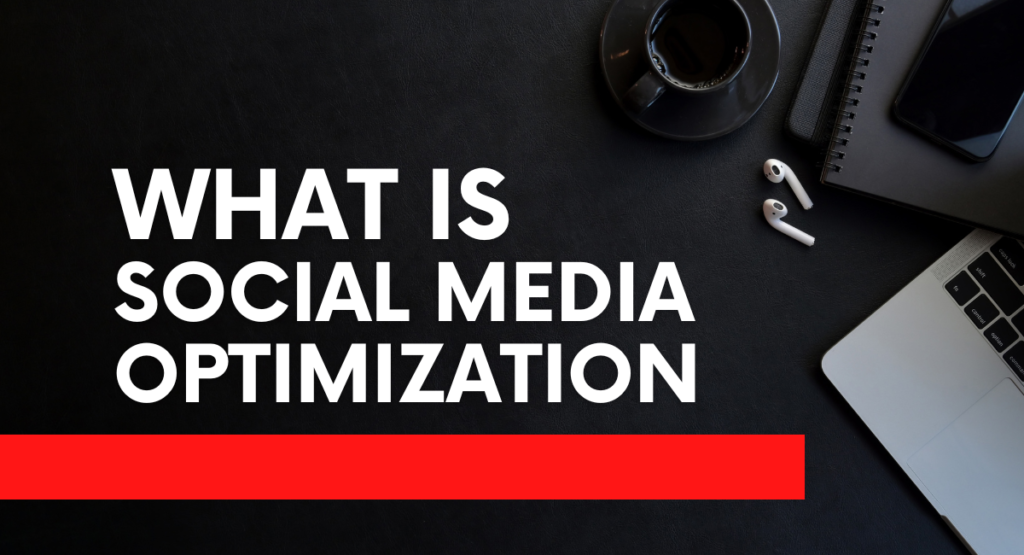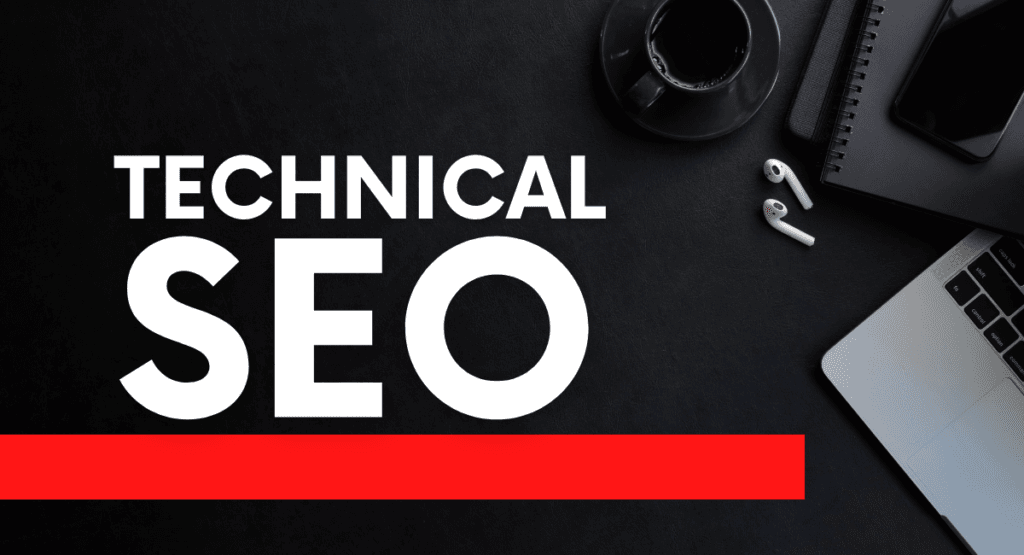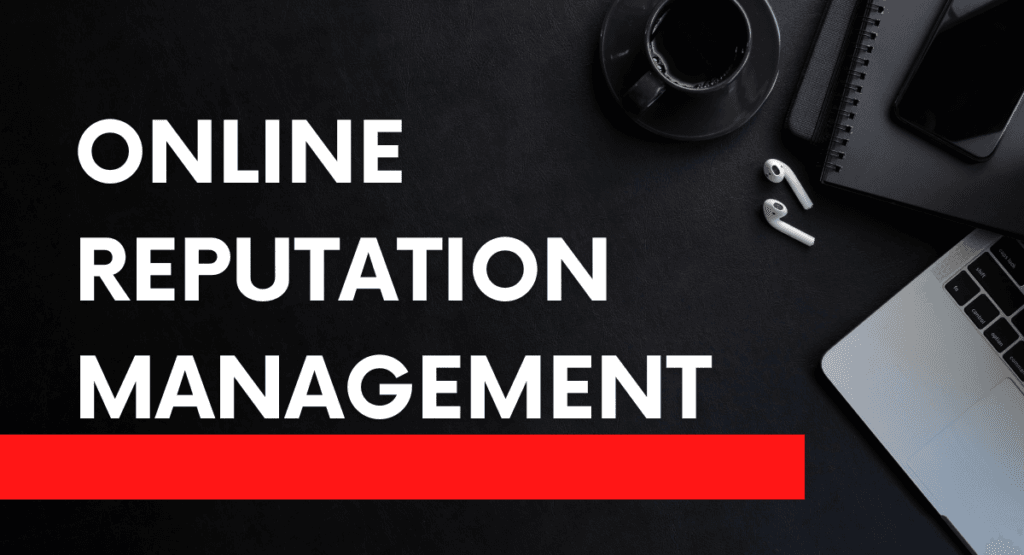Brief introduction to marketing automation
“Marketing automation” uses software and technology to measure, streamline, and automate marketing workflows and operations. Businesses that automate repetitive tasks like email advertising, social media posting, and lead management can increase overall efficiency, personalize consumer experiences, and nurture leads.
Importance of marketing automation in modern business strategies
For a firm to succeed in today’s dynamic digital landscape, marketing automation is essential. It is a crucial component of contemporary marketing strategies since it helps businesses to scale their marketing initiatives, target the right audience at the right time, and deliver better results with fewer resources.
Overview of the benefits of marketing automation
The key benefits of marketing automation include enhanced efficiency, improved lead nurturing, and more customisation. Businesses can increase return on investment (ROI) and achieve higher conversion rates by using analytics to provide relevant information, automating tedious procedures, and tightly focussing marketing efforts.
Understanding Marketing Automation
What is Marketing Automation?
The practice of leveraging software platforms and technology to enhance client connection, streamline workflows, and automate time-consuming marketing operations is known as marketing automation. It aids companies with lead nurturing, multichannel campaign management, and campaign effectiveness measurement. This allows marketers to concentrate on strategy rather than tedious duties.
Definition of marketing automation
The process of employing tools and software to automate marketing tasks, such as ad targeting, social network posting, and email campaigns, is known as marketing automation. Businesses may provide individualised experiences at scale, enhancing customer connection all the way through the sales funnel and increasing productivity, by automating these procedures.
Historical background and evolution of marketing automation
Beginning in the late 1990s, marketing automation progressed from simple email marketing tools to complex systems that could manage multichannel campaigns. With the incorporation of elements like artificial intelligence (AI), consumer segmentation, and data analytics, marketers can now offer more individualised and targeted experiences thanks to technological advancements.
Common misconceptions about marketing automation
One prevalent misperception is that marketing automation replaces the need for human marketers. Actually, it’s a tool meant to supplement marketing activities, not to take their place. It’s a fallacy that automation is impersonal, yet technology may help create highly individualised consumer experiences in large quantities when used properly.
How Marketing Automation Works
Through automated workflows, marketing automation reduces tedious tasks like lead upkeep, social media posting, and email advertising. By nurturing leads, personalising messaging based on consumer behavior, and focussing on particular groups, organisations can increase productivity, engagement, and marketing performance tracking.
The role of software and technology in marketing automation
The majority of marketing automation is reliant on software and technology, which enables marketers to massively manage, plan, and evaluate campaigns. These solutions save labour costs by integrating with several platforms, including social media, email, and CRM systems. They also provide customised messaging, data-driven insights, and smooth cross-channel communication.
Key components of a marketing automation system
A marketing automation system includes lead nurturing, email marketing, social media management, and customer relationship management (CRM). With its capacity to split audiences, automate responses, streamline processes, and assess campaign efficacy, it provides a cohesive method for successfully engaging prospects and converting them into leads or sales.
Examples of marketing automation tools and platforms
A few well-known platforms and tools for marketing automation are Mailchimp, ActiveCampaign, Marketo, HubSpot, and Marketo. Marketers can measure customer interactions, manage and improve campaigns, and boost engagement across many channels with the aid of these technologies. A handful of the features include social media scheduling, lead scoring, email automation, CRM integration, and analytics.
The Benefits of Marketing Automation
Efficiency and Productivity
Automation boosts productivity by handling repetitive tasks and reducing human labour, freeing up employees to focus on more strategic work. It promotes quicker processes, higher operational output, and increased productivity by eliminating barriers and reducing errors.
How automation saves time and resources
Tasks that would take humans hours or days to complete are completed in a matter of minutes by automation, which saves time. It also minimises resource consumption by decreasing physical work, lowering human error, and optimising operating costs for enterprises.
Streamlining repetitive tasks and processes
Automation simplifies repetitive tasks, such as data entry, email marketing, and inventory management. By eliminating repetitive workflows and allocating human resources to high-value tasks, businesses can enhance process efficiency and lower operational friction by implementing automation solutions.
Case studies showcasing improved efficiency
Several case studies demonstrate how businesses increased productivity through automation. Retail behemoths, for instance, used AI to optimise supply chain management, while marketing companies used it to automate email campaigns that enhanced lead generation and conversions while requiring a great deal less manual input.
Personalization at Scale
Businesses may now offer individualised experiences and information at scale that are catered to the tastes of each customer thanks to automation. By offering pertinent product recommendations, offers, and messaging, this improves customer satisfaction and greatly improves the customer experience and engagement.
Delivering personalized content and experiences
Businesses can collect consumer information using automated marketing technologies and distribute tailored content via social media, websites, and emails. Because they feel more connected to the brand, experiences that are tailored to the preferences of the user improve customer engagement and foster stronger brand loyalty.
The impact of personalized marketing on customer engagement
Customised advertising gives customers a sense of importance, which significantly raises customer engagement. When customers receive tailored communications, offers, or recommendations, they are more likely to establish a connection with the business. Long-term, this increases sales, customer loyalty, and click-through rates.
Examples of successful personalized marketing campaigns
Two of the best examples of successful customised marketing are Netflix and Amazon. Amazon’s product recommendations and Netflix’s tailored content recommendations both leverage customer data to enhance user engagement, raise satisfaction, and foster brand loyalty—all of which are factors in long-term business growth.
Data-Driven Decision Making
Making marketing decisions based on verifiable facts instead of guesswork or intuition is known as data-driven decision-making. Businesses may be assured that decisions made through the research of customer behaviour, market trends, and campaign performance will result in more focused plans and optimal outcomes.
Utilizing analytics and insights from automation tools
Automation systems provide meaningful analytics by tracking many indicators, such as click-through rates, conversion data, and user engagement. These real-time campaign success data allow marketers to focus on high-impact areas, automate time-consuming tasks, and enhance strategy.
Tracking and measuring marketing performance
Monitoring key performance indicators (KPIs) like as return on investment (ROI), new client acquisition expenses, and engagement metrics is part of this process. This helps assess the effectiveness of campaigns, identifies areas that require improvement, and ensures that resources are allocated effectively in order to meet organisational objectives.
How data drives better marketing strategies
Data is crucial for enhancing marketing strategies since it provides insights into consumer preferences, behavior patterns, and market trends. It helps marketers to better target, personalize content, and modify their approach—all of which lead to campaigns that are more engaging and generate a higher return on investment.
Common Applications of Marketing Automation
Lead Generation and Nurturing
Lead generation involves attracting new customers, whereas lead nurturing focusses on building lasting relationships. Companies who use automation to automate lead generation, follow-up, and engagement may maximise these processes. This reduces the need for manual effort and raises the general efficacy of marketing campaigns.
How automation helps in capturing and nurturing leads
Automation systems collect leads through social media interactions, forms, and chatbots, ensuring that no opportunity is missed. These technologies nurture leads through tailored messages after they are obtained. They eventually assist prospects in moving through the sales funnel and offer timely content as well.
The role of automated workflows in lead management
By establishing predetermined actions based on triggers, such as lead score or engagement, automated workflows assist in managing leads. For instance, the system might automatically send a follow-up email to a lead who downloads a whitepaper. These procedures guarantee quick interactions and increase conversion rates without involving the operator.
Examples of lead nurturing strategies
Providing discounts, planning follow-up calls based on user behavior, and sending instructional resources are all examples of successful lead-nurturing techniques. Automation facilitates the regular delivery of these actions, keeping prospective clients informed, involved, and one step closer to completing a transaction.
Email Marketing Automation
Businesses can send customised emails to customers and prospects based on predetermined actions or deadlines by utilising email marketing automation. To maintain relationships and boost engagement rates, marketers should send timely and relevant emails that don’t need a lot of human entry.
The power of automated email campaigns
Automated email marketing programs possess the ability to cultivate leads, recruit new clients, and revive inactive subscribers. User actions, such making a purchase or subscribing to a newsletter, initiate these campaigns, guaranteeing that the audience is exposed to pertinent content at the most influential moment.
Segmenting and targeting audiences through automation
A variety of criteria, including demographics, behaviour, and interests, can be used to generate audiences’ groups. Businesses may achieve higher engagement and conversion rates by tailoring their emails to target specific demographics. Additionally, by offering personalised content, they can increase customer happiness.
Examples of effective email automation sequences
Effective email automation sequences include welcome series, post-purchase follow-ups, and cart reminders. For example, if a consumer leaves their shopping basket empty, a clothes store may automatically send them an email offering discounts.
Social Media Management
By planning updates ahead of time, automated social media management enables companies to keep a consistent online presence. This allows marketers to shift their attention from daily posting to strategy. Automated features like auto-replies and planned responses allow for timely contact with followers.
Automating social media posts and engagement
Businesses may schedule their social media posts in advance and guarantee a steady stream of material with the help of engagement automation solutions. Furthermore, to be more responsive and free up human resources for more difficult tasks, chatbots and autoresponders can do repetitive tasks like answering consumer inquiries.
Tools for scheduling and analyzing social media performance
Sprout Social, Buffer, and Hootsuite are a few of the platforms that let organisations monitor their social media performance and schedule posts automatically. By giving brands data on follower growth, engagement, and content success, they help them fine-tune their strategy and get the most out of their social media investments.
Examples of brands using social media automation effectively
Companies like Starbucks and Netflix use social media automation to interact with their fans, keep a regular posting schedule, and even personalise messages. By automating time-consuming processes, these businesses sustain vibrant online communities and free up staff members’ time to concentrate on producing original, thought-provoking content.
Customer Relationship Management (CRM) Integration
CRM integration is the process of integrating CRM software with other company technologies, particularly marketing platforms. This provides a holistic view of customer interactions and boosts the effectiveness of managing client relationships at every phase of their lifetime, from lead generation to retention, by enabling smooth data flow between platforms.
The role of CRM in marketing automation
CRM centralises client data, which is crucial for marketing automation. Then, automatic and tailored marketing campaigns are made with this data. In addition to saving labour costs, it facilitates the tracking of consumer behaviour and preferences, which enables marketers to target specific audiences with tailored messaging, segment audiences efficiently, and assess campaign performance.
How automation enhances customer relationships
Automation enhances client connections by offering timely, customised interactions over several channels. Social media replies, customised content, and automated emails all help with lead nurturing, greater engagement, and loyalty. This approach ensures consistent correspondence and enables prompt and efficient customer support.
Benefits of integrating CRM with marketing automation tools
CRM and marketing automation systems can be integrated to provide a unified customer view, improved segmentation, and extensive campaign customisation. Furthermore, it enhances customer satisfaction, speeds up lead handling, boosts sales productivity, and offers deeper insights via combined data, which supports strategy optimisation.
Challenges and Considerations
Common Pitfalls to Avoid
Many firms run into problems when implementing marketing automation, such as utilising the wrong technologies, not having a defined strategy, or depending too much on automation. These concerns, should the automated systems fail to take human interaction into account, could result in poor communication, inefficiency, and even consumer alienation.
Over-automation and losing the human touch
When customer interactions are overly automated, they may come out as robotic and lacking the personal touch that fosters loyalty and trust. It takes a careful balance between automation and human contact to keep audiences interested and avoid making them feel neglected or undervalued.
Balancing personalization with automation
Scalable personalisation is made possible by automation, but overreliance on technology could result in phony, generic communication. Personalized interactions are crucial when employing automation to increase output. Improving client happiness and engagement can be achieved, for example, by making sure that personalized information looks distinct and pertinent.
Ensuring data privacy and compliance
Businesses are required by data privacy legislation, like the CCPA and GDPR, to handle personal information appropriately. Failure to comply could result in penalties and damage to one’s reputation. To preserve user confidence and stay out of trouble with the law, make sure your marketing automation software manages data securely and conforms with regulations.
Choosing the Right Marketing Automation Platform
In light of your company’s objectives, it’s critical to weigh the features, pricing, scalability, and user-friendliness of potential marketing automation platforms. To make sure the platform meets the unique needs of your business, it is essential to evaluate its features, possibility for integration, and customer support.
Factors to consider when selecting a platform
When selecting a marketing automation platform, several aspects should be taken into account, including as cost, feature availability, scalability, ease of use, and compatibility with current systems. The platform ought to be flexible enough to grow with your company and your changing marketing requirements.
Comparing popular marketing automation tools
HubSpot, Marketo, and Mailchimp are well-known marketing automation platforms that offer a variety of functionalities suited to various business requirements. In light of the specific needs of your company, you can compare options’ pricing, user interface, integrations, and customer support to choose which is the best fit.
Tips for successful implementation
The adoption of marketing automation will be successful if you set clear goals, assemble a strong team, start small, and expand from there. To achieve the best outcomes over time, make sure that the automated processes interface seamlessly with the current systems, keep an eye on performance, and improve them iteratively.
Future Trends in Marketing Automation
AI and Machine Learning in Marketing Automation
AI and machine learning are revolutionizing marketing by automating repetitive tasks like email campaigns, social media scheduling, and consumer segmentation. Consequently, businesses may improve customer interaction, simplify workflows, and customize their messaging, all of which raise output and improve marketing outcomes.
The growing role of AI in automating marketing tasks
Processes like lead scoring, chatbots, and content creation are increasingly being automated. These technologies allow marketers to focus on creativity and strategy while AI handles tedious duties, boosting productivity and ensuring faster, data-driven decisions that improve campaign performance.
Predictive analytics and AI-driven insights
Marketers can use AI-powered predictive analytics and historical data to forecast consumer behavior, analyse patterns, and customize advertising. More individualised marketing is made possible by AI-driven analytics, which helps businesses make informed decisions, increase client retention, and optimize return on investment (ROI).
Future possibilities and innovations in marketing automation
AI-driven hyper-personalization, voice-activated marketing, and more sophisticated chatbots are some of the upcoming advancements in marketing automation. These innovations will enable marketers to deliver highly relevant content in real time and more accurately forecast client needs, revolutionizing the way businesses engage with customers across all media.
The Impact of GDPR and Data Privacy Laws
GDPR and associated data privacy laws have had a significant impact on marketing automation by forcing companies to reevaluate how they collect, retain, and use customer data. These regulations, which require marketers to get consumer consent and provide consumers with more choice over how their data is used, strongly emphasize transparency.
How regulations are shaping marketing automation
Data privacy laws are forcing businesses to adopt safer and more transparent marketing techniques. These days, automation systems come with compliance capabilities, consent management, and data handling and monitoring that maintain legal requirements without compromising campaign effectiveness or customer confidence.
Best practices for maintaining compliance
To comply with GDPR and other data privacy regulations, businesses should emphasize obtaining explicit consent, regularly evaluating data usage, and providing clear opt-in/opt-out alternatives. Automated processes that monitor user consent, encryption, and anonymization are used to maintain transparency and safeguard consumer data.
Conclusion
Marketing automation has fundamentally altered how businesses engage with their customers by automating repetitive tasks and maximizing marketing efforts. It enables efficient lead nurturing, focused communication, and improved campaign management in addition to saving time and money. Whether for B2B or B2C, using marketing automation technologies is critical to enhancing customer experiences and return on investment. By employing the right strategies and technology, businesses may enhance performance, plan marketing and sales campaigns, and make data-driven decisions that support growth.
FAQ’s
What are the key features to look for in a marketing automation tool?
Lead scoring, email automation, analytics, multi-channel campaign management, and CRM integration are a few features to check for.
What is the difference between marketing automation and email marketing?
Email marketing is only marketing through email while marketing automation includes multi-channel campaign automation and lead nurturing.
How does marketing automation help in improving ROI?
It increases efficiency through process automation, improved lead targeting, and the ability to create tailored campaigns that increase conversion rates.
Can marketing automation be used for B2B marketing?
Indeed, business-to-business (B2B) marketing achieves great success with marketing automation. Lead nurturing, sales alignment, and account-based marketing are all supported by it.







